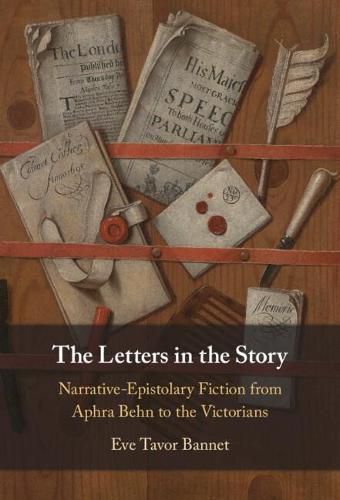Readings Newsletter
Become a Readings Member to make your shopping experience even easier.
Sign in or sign up for free!
You’re not far away from qualifying for FREE standard shipping within Australia
You’ve qualified for FREE standard shipping within Australia
The cart is loading…






The long tradition of mixta-genera fiction, particularly favoured by women novelists, which combined fully-transcribed letters and third-person narrative has been largely overlooked in literary criticism. Working with recognized formal conventions and typical thematic concerns, Tavor Bannet demonstrates how narrative-epistolary novels opposed the real, situated, transactional and instrumental character of letters, with their multi-lateral relationships and temporally shifting readings, to merely documentary uses of letters in history and law. Analyzing issues of reading and misreading, knowledge and ignorance, communication and credulity, this study investigates how novelists adapted familiar romance plots centred on mysteries of identity to test the viability of empiricism’s new culture of fact and challenge positivism’s later all-pervading regime of truth. Close reading of narrative-epistolary novels by authors ranging from Aphra Behn and Charlotte Lennox to Frances Burney and Wilkie Collins tracks transgenerational debates, bringing to light both what Victorians took from their eighteenth-century forbears and what they changed.
$9.00 standard shipping within Australia
FREE standard shipping within Australia for orders over $100.00
Express & International shipping calculated at checkout
The long tradition of mixta-genera fiction, particularly favoured by women novelists, which combined fully-transcribed letters and third-person narrative has been largely overlooked in literary criticism. Working with recognized formal conventions and typical thematic concerns, Tavor Bannet demonstrates how narrative-epistolary novels opposed the real, situated, transactional and instrumental character of letters, with their multi-lateral relationships and temporally shifting readings, to merely documentary uses of letters in history and law. Analyzing issues of reading and misreading, knowledge and ignorance, communication and credulity, this study investigates how novelists adapted familiar romance plots centred on mysteries of identity to test the viability of empiricism’s new culture of fact and challenge positivism’s later all-pervading regime of truth. Close reading of narrative-epistolary novels by authors ranging from Aphra Behn and Charlotte Lennox to Frances Burney and Wilkie Collins tracks transgenerational debates, bringing to light both what Victorians took from their eighteenth-century forbears and what they changed.